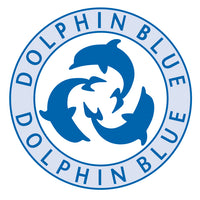
Although writer Daniel Quinn is a well-known environmentalist, he wouldn't categorize himself that way.
"I don't consider myself an environmentalist, " he told EcoGeek.org. "I feel that the category itself is badly conceived, dividing the world into people who are 'for the environment' and people who are 'for people,' which is nonsense. Thus it came to be seen that 'environmentalists' were 'for' the spotted owl, while non-environmentalists were seen to be 'for' forestry jobs that would be lost by saving the spotted owl. The term 'environmentalism' emphasizes a false division between 'us' and 'it' -- 'it' being the environment. There is no 'it' out there. We are all in this together. There are no two sides. We cannot survive as a species somehow separate from the rest of the living community. "
Humankind as a Global Tyrant Quinn's view on environmentalism is just one example of his unique way of thinking. His most famous display of thought is in his book Ishmael, a novel that delves into the problem of how humankind can stop destroying the earth. In it, the narrator answers a personals ad from a teacher seeking a pupil with a desire to save the world, and meets Ishmael, a telepathic gorilla.
According to Quinn's site, Ishmael.org, "Ishmael's paradigm of history is startlingly different from the one wired into our cultural consciousness. For Ishmael, our agricultural revolution was not a technological event but a moral one, a rebellion against an ethical structure inherent in the community of life since its foundation four billion years ago. Having escaped the restraints of this ethical structure, humankind made itself a global tyrant, wielding deadly force over all other species while lacking the wisdom to make its tyranny a beneficial one or even a sustainable one.
"That tyranny is now hurtling us toward a planetary disaster of pollution and overpopulation. If we want to avoid that catastrophe, we need to work our way back to some fundamental truths: that we weren't born a menace to the world and that no irresistible fate compels us to go on being a menace to the world. "
Becoming a Thinker Quinn wrote the book in order to submit it to the Turner Tomorrow Fellowship Award, which was created by Ted Turner to recognize an unpublished work of fiction that offered creative and positive solutions to global problems. Ishmaelwon the award in 1991, and with it, $500,000. When the book was published the next year, it was met with critical acclaim, called "a thoughtful, fearlessly low-key novel " by The New York Times Book Review, "wonderfully engaging, " by The Los Angeles Times Book Review, and "suspenseful, inventive, and socially urgent " by The Austin Chronicle.
The book was not without its controversies, though. Quinn touches on the argument that providing food aid to impoverished countries only exacerbates overpopulation and environmental issues, as population growth is a function of food supply. This idea is explored more in some of his other books, as well as in the DVD Food Production and Population Growth.
Whether or not you agree with all his ideas, Quinn has a way of thinking that brings a fresh perspective to long-held beliefs, challenging people to throw out what they think they know and approach problems in a new way.
In My Ishmael (a follow-up to Ishmael), Quinn wrote: "Thinkers aren't limited by what they know, because they can always increase what they know. Rather they're limited by what puzzles them, because there's no way to become curious about something that doesn't puzzle you. "
